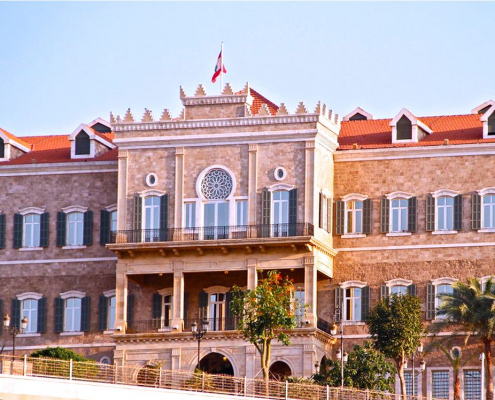 Siren Associates
https://sirenassociates.com/wp-content/uploads/2023/09/Archiving-in-Lebanons-Vehicle-Registration-Office.jpg
1125
2000
Nick Newsom
https://sirenassociates.com/wp-content/uploads/2019/06/SA-Logo_340156-01-300x138.png
Nick Newsom2023-09-25 09:08:172023-09-25 10:58:49Fighting corruption in Lebanon: vehicle registration
Siren Associates
https://sirenassociates.com/wp-content/uploads/2023/09/Archiving-in-Lebanons-Vehicle-Registration-Office.jpg
1125
2000
Nick Newsom
https://sirenassociates.com/wp-content/uploads/2019/06/SA-Logo_340156-01-300x138.png
Nick Newsom2023-09-25 09:08:172023-09-25 10:58:49Fighting corruption in Lebanon: vehicle registrationIn Lebanon, Siren has been at the forefront of measuring community perceptions of safety and gauging the relationship between security institutions and the communities they represent and serve. Siren prioritizes the use of evidence to drive our interventions with context-specific conflict analysis underpinning our efforts to bring about more just and safe societies.
Public Perceptions as a Key Component of the Community Policing Model
Beginning in 2009, Siren has conducted successive nationwide and localized public perception surveys in Lebanon as part of our UK (CSSF) funded policing programme (implemented in partnership with Northern Ireland Cooperation Overseas). These surveys have sought to map both Lebanese and refugee views on safety, security, the ISF (Lebanese national police force), and other public security institutions. The surveys identified core obstacles to improved confidence in the ISF and shed light on drivers of continued tensions between these two communities. The survey results have been instrumental in supporting the ISF to identify priorities for institutional development and have informed both the ISF leadership and international partners on where to focus reform efforts to strengthen the trust and partnership with communities, both host and refugee. For example, in the jurisdiction of Ras Beirut Police Station, the pilot site for the community policing programme, full trust in the ISF rose from 12% (2015) to 46% (2017). Additional findings have helped to inform the ISF’s community engagement approach in response to community priorities. As a result of our work, the ISF leadership have now enshrined the concept of engaging with civil society in its policy guidelines, including the ISF Strategic Plan 2018-2022 and the Policing Modernisation Roll-Out Guidelines.
Assessing Needs and Local Conflict Dynamics
Siren, in addition to spearheading the initial introduction of community policing in Beirut, has also assisted the ISF in assessing the possibility of expanding the model beyond Beirut.
In 2014, Siren conducted research on how the Municipal Police and the Internal Security Forces (MP and ISF) managed the refugee crisis. Findings of the research concluded there was neither an overarching national strategy nor a uniform local approach to addressing the Syrian refugee crisis in Lebanon. In addition, it concluded that contrary to popular perception, Syrian refugees were not responsible for causing more crime; were often scapegoated for societal problems; were subject to arbitrary arrest and detention, and curfews; subject to eviction, vulnerable to corrupt practices and exploitation. The researchers concluded that the he Municipal Police and the ISF should take an instrumental role in reducing intercommunal tension. Key recommendations included establishment of guiding principles for Lebanese law enforcement agencies in refugee related issues; improving oversight structures; enhancing digital information gathering and sharing and first responder capacities for security stakeholders and enhancing mobile community policing capabilities. The report also recommended the undertaking of select community impact assessments, the creation of a security stakeholder response system and the implementation of best legal practices in refugee registration and renewal processes and criminal profiling mechanisms.
In 2016, Siren conducted, under the British Policing Support Project, a security assessment in Arsal. The researchers mapped the religious and political context as well as the presence of security agencies and armed groups in the area. Conflict dynamics between different groups were analysed and a simulation model was used to forecast anticipated outcomes of introducing community policing to better meet host and refugee safety needs.
In 2017, another study was carried out, to assess and evaluate the policing needs for Tripoli with the aim of evaluating the potential for introducing community policing. Tripoli is Lebanon’s third biggest city with pressures of poverty, the threat of extremism and the risk of the eruption of violence, coupled with a poorly resourced police service. Tripoli also has high concentrations of Syrian refugees who continue to be neglected by state institutions in the area. The study identified a number of options that could be adopted to improve stability in the city.
Siren continues to draw on the wealth of information garnered through these research activities in order to ensure relevant programming, provide strategic support to the ISF and Ministry of Interior and Municipalities, and provide guidance to partner organisations and the broader donor community regarding security developments in Lebanon.









